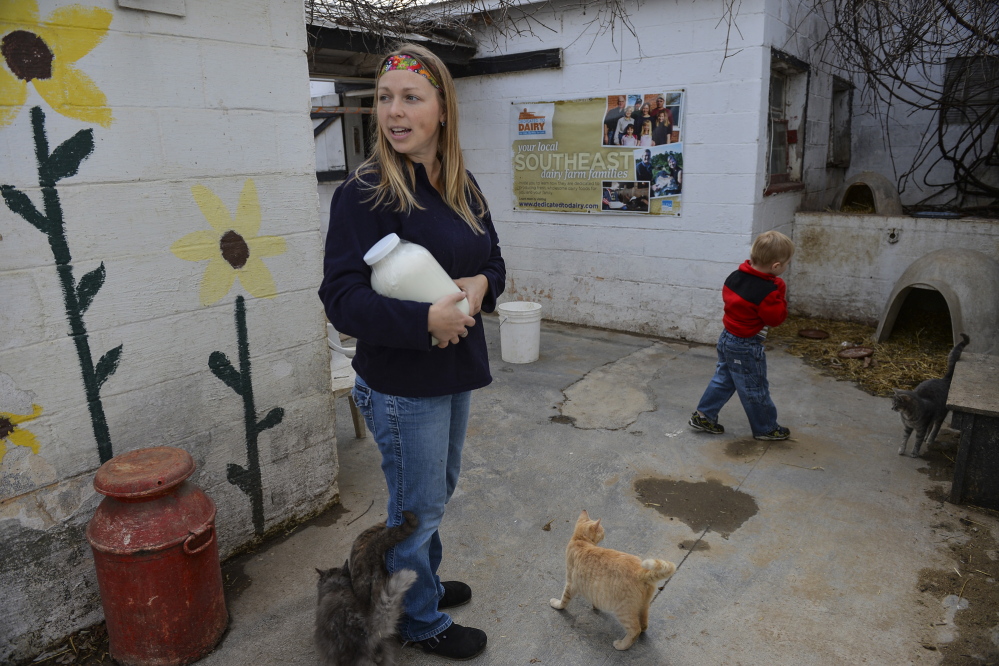MONTPELIER, Vt. – Vermont Rep. Teo Zagar says he prefers raw, unpasteurized milk, but will stop at his general store for the conventional stuff when the dirt road to his favorite farm is deep in snow or spring mud.
“There’s a little more terroir,” the Democrat from Barnard said of the milk he gets from Kiss the Cow Farm, using a wine enthusiast’s term for earthiness. “If the dandelions are blooming, the milk has a little yellow tint to it.”
Zagar is lead sponsor of a House bill that would made it easier for the state’s growing number of organic dairies to bring raw milk to market. Consumers now must go to the farm or have it delivered to them by the farmer. The bill would allow raw milk to be sold at farmers’ markets, through community-supported agriculture programs and, with some additional regulation, at retail.
The state Health Department doesn’t like the idea.
Expanding the sale of raw milk “really allows producers to bypass one of the most effective public health measures ever, one that is often called one of the triumphs of the 20th century, and that is pasteurization,” said Dr. Erica Berl, a state epidemiologist.
The growing popularity of raw milk has been accompanied by increasing numbers of outbreaks of diseases related to pathogens including E. coli, listeria, camphylobacter and salmonella, she said. The federal Centers for Disease Control and Prevention recorded 30 such outbreaks in 2007 through 2009 and 51 in 2010 through 2012, she said.
“Eighty-one percent of outbreaks were reported from states where the sale of raw milk was legal in some form,” she said. “Only 19 percent occurred in states where the sale of raw milk was illegal.”
Raw milk’s popularity has been growing in recent years, as people become more educated about food and as the “foodie” movement gains ground with its adherents’ interest in traditional foods, said Andrea Stander, executive director of the farm advocacy group Rural Vermont. Its sale is legal in some form in 26 states, she said.
Vermont opened the door to the current, limited sales of raw milk in 2009, and the bill’s backers say there have been no disease outbreaks since then. Raw milk producers testified they have unnecessary hurdles to pass that are not faced by conventional dairies, including the need to drive their milk to just two locations in the state for testing.
Aside from the expanded sales, the bill would allow less frequent testing of milk produced by raw milk dairies. But supporters say the real aim is to better balance the costs of doing business with profitability.
“It’s a balance between safety, which is No. 1, and economic opportunity,” Zagar said. “Farmers need to sell enough milk to make enough profits to keep the business viable.”
Stander said the bill is not expected to become law with less than two months left in this year’s legislative session. But if it can get through the House, the Senate can take it up when lawmakers reconvene next January.
Send questions/comments to the editors.


